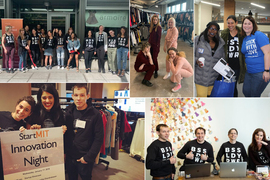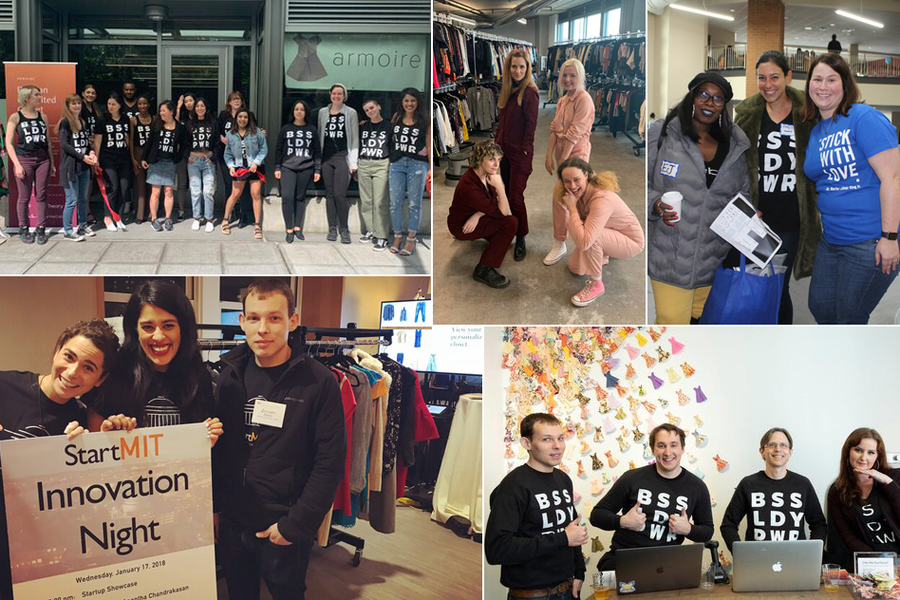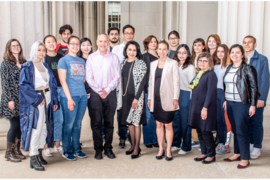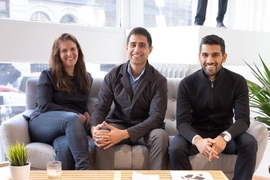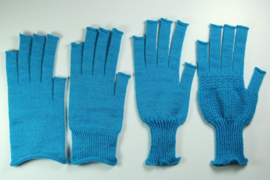In today’s world of fast fashion, retailers sell only a fraction of their inventory, and consumers keep their clothes for about half as long as they did 15 years ago. As a result, the clothing industry has become associated with swelling greenhouse gas emissions and wasteful practices.
The startup Armoire is addressing these issues with a clothing rental service designed to increase the utilization of clothes and save customers time. The service is based on machine-learning algorithms that use feedback from users to make better predictions about what they’ll wear.
Customers pay a flat monthly price to get access to a range of high-end styles. Each time they log into Armoire, they get a personalized list of items to choose from. When they don’t want the clothing anymore, they return it to be used by someone else.
“Our whole goal is to help clothes achieve end of life with a customer rather than at the back of your closet or ending up in a landfill,” Armoire co-founder and CEO Ambika Singh MBA ’16 says. “The metric we look at is the utilization of our clothes, and, amazingly, 95 percent of the things we own have been rented — unlike a normal retailer who might sell 35 percent of what they bring in at the beginning of the season.”
The company says its service is tailored toward busy women who don’t have time to browse cluttered clothing aisles or endless webpages for new outfits.
According to Singh, Armoire has grown 300 to 500 percent a year since its founding in 2016. The company now has thousands of customers across the U.S.
“A typical customer response after a while is they feel really happy when they look at their closet instead of overwhelmed,” Singh says. “It’s fun to have this asset-light way of living.”
Leaning on MIT’s community
Singh came to MIT in 2014 with plans to start a company. She had previously spent seven years working in the tech industry, first with Microsoft then as an early hire at two startups.
She says the first thing that struck her about MIT was the integration between its business and engineering schools. The second was how supportive MIT’s community of professors and students were. She quickly took advantage of both attributes.
Singh spoke at length with professors about the potential for machine-learning algorithms to provide personalized recommendations and leaned on classmates for early idea validation and testing.
In fact, when Singh started Armoire, classmates used it as a case study for marketing and analytics research projects. Others became early customers. Singh jokes that by the time she graduated, half of her Sloan class had touched Armoire in some way.
Singh also worked with various entrepreneurial organizations at MIT, receiving support from the MIT Sandbox Innovation Fund and participating in the Martin Trust Center for MIT Entrepreneurship’s delta v summer accelerator.
Singh remembers showing up on the first day of delta v with huge racks of clothes and seeing the small desks each team was given as workspace. Fortunately, someone found a nearby conference room with a closet.
During delta v, Singh and her team bought inventory, got the clothes shipped to the Trust Center, packaged the items, and finally delivered them around campus or to the post office by scooter.
In the fall of 2016, Singh was joined by Armoire co-founder Zachary Owen PhD ’18, who helped build the company’s recommendation systems but is no longer with Armoire.
Armoire’s core algorithm is something called a collaborative filter, which makes predictions about user preferences based on data collected on many other users. Such filters work on the assumption that if two people have similar tastes around one item, they share preferences on others. Armoire’s algorithms also make use of dozens of labels the company manually enters for each item around things like color, fit, and seasonality.
At the heart of Armoire is the idea that a clothing rental company can gather more data about customer preferences than a company that sells clothing to customers once. That data can then be used to deliver better service.
A new model for fashion
Armoire offers customers three tiers of service depending on how many clothes they want to keep at one time. Customers can keep their clothes as long as they like. The company curates selections from thousands of top designers and independent labels, with styles for being comfortable at home, attending formal business events, working out, and more.
The Covid-19 pandemic has slowed the company’s growth trajectory, but Singh says it’s also given Armoire’s leadership team a chance to refocus on their existing customers.
“The good thing about the Covid-19 disruptions is they’ve given us a chance to take a step back and focus on the product,” Singh says. “We’ve focused on our existing base, which is good because with subscription it’s always about adding more value to the customers you have.”
Singh is also proud of the culture Armoire has fostered. All of Armoire’s warehouse workers are women or nonbinary, an uncommon breakdown in warehouses. Singh credits Armoire’s leadership team with creating a welcoming work environment, noting there’s been very little turnover in Armoire’s warehouses.
“Some of [our workers] are single moms, and they come with a different set of challenges,” Singh says. “Most warehouses don’t allow people to carry their phone because they’re worried about employees slacking off. If you’re a single mom, that makes the job impractical because you can’t be walking around without your phone and then find out something happened to your kid.”
Ultimately, Singh credits many companies with trying to innovate in the fashion industry, citing companies helping to clean up clothing production and increase recycling.
For Armoire, though, meaningful impact will continue to come from helping customers cut down on waste.
“We don’t get 95 percent of our inventory rented because I’m so good at picking out clothes,” Singh says. “We do it because we took all the data our customers gave us and built a model that helped us understand what we should be buying. It shows the capital efficiency of the business, it shows we make good on our sustainability desire, and when I look forward, it’s about what kind of innovations we can achieve that help us better serve our customers and the world.”
